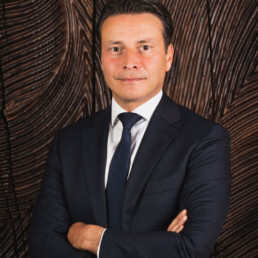Key takeaway
RAIFs and unregulated AIFs (e.g. SCSp and SCS) are now considered reportable financial institutions since they can no longer benefit from the exempt CIV status. They must file a (nil) report by 30 June 2022 to avoid penalties.
Introduction
On 4 April 2022, the Luxembourg direct tax administration (“ACD”) updated its frequently asked questions (“FAQ”) on the common reporting standard (“CRS”). Such FAQ now includes two new questions, providing a list of Investment Entities (I) and a clarification relating to the scope of the exempt Collective Investment Vehicle (“exempt CIV”) status (II). They are important, in particular, for reserved alternative investment funds (“RAIFs”) and unregulated alternative investment funds (“AIFs”). As a reminder, CRS is an automatic exchange of information relating to financial accounts in tax matters with the Member States of the European Union and the other partner jurisdictions of Luxembourg as implemented by the amended law of 18 December 2015 relating to the automatic exchange of information in tax matters (“CRS Law”). The CRS Law requires Reporting Financial Institutions (“RFIs”) to declare some information in relation to certain accounts and the holders of such accounts. The RFIs are defined as all financial institutions which are not non-reporting financial institutions (“NRFIs”). One element of the definition of the NRFIs is the exempt CIV status. Therefore, such exempt CIVs do not have to report to the ACD concerning CRS matters. The updated FAQ narrows the scope of the exempt CIV status, which was interpreted as including RAIFs and other unregulated AIFs until now.
Please find below the two Q&A of the ACD in the updated FAQ on CRS.
I) A non-exhaustive list of Investment Entities (Q 2.3)
Except in special circumstances, the following entities are, in principle, considered Investment Entities:
– any undertaking for collective investment subject to Part I or II of the amended law of 17 December 2010 relating to undertakings for collective investment;
– any specialized investment fund subject to the amended law of 13 February 2007 relating to specialized investment funds;
– any venture capital company governed by the amended law of 15 June 2004 relating to venture capital companies (SICAR);
– any securitisation undertaking subject to the authorisation and supervision of the Commission de Surveillance du Secteur Financier (the “CSSF”) in accordance with the amended law of 22 March 2004 relating to securitisation;
– any RAIF falling within the scope of the amended law of 23 July 2016 relating to reserved alternative investment funds;
– any AIF whose management falls within the scope of the amended law of 12 July 2013 relating to alternative investment fund managers;
– any pension fund governed by the amended law of 13 July 2005 relating to institutions for occupational retirement provision in the form of SEPCAV and ASSEP;
– any pension fund governed by the amended Grand-Ducal Regulation of 31 August 2000 implementing Article 26, paragraph 3, of the amended law of 6 December 1991 on the insurance sector and relating to pension funds subject to the prudential supervision of the Commissariat aux assurances;
– any management company subject to part IV of the amended law of 17 December 2010 relating to undertakings for collective investment;
– any manager of alternative investment funds governed by the amended law of 12 July 2013 relating to managers of alternative investment funds; and
– any investment firm governed by the amended law of 5 April 1993 relating to the financial sector which carries out any of the following activities: (i) execution of orders on behalf of clients, (ii) portfolio management.
II) Unregulated entities such as RAIFs and other unregulated AIFs and the exempt CIV status (Q 2.4)
The ACD indicates in the FAQ that unregulated entities can no longer benefit from the exempt CIV status, as only entities directly supervised by the CSSF may opt for this status if the other applicable conditions are fulfilled.
As a result of the answers mentioned above, the RAIFs and the unregulated AIFs should now submit every year a nil report to the ACD if there is no CRS reportable account. Indeed, RAIFs and unregulated AIFs may not qualify as NRFI anymore. Therefore, RAIFs and unregulated AIFs qualifying as RFI must respect the reporting and due diligence CRS obligations. They should review their CRS qualifications and applicable CRS reporting obligations.
Based on the fact that neither the CRS law nor the ACD refer to the legal form of the entities, the same reasoning applies to unregulated AIFs under the form of a common limited partnership (société en commandite simple – SCS) or a special limited partnership (société en commandite spéciale – SCSp). RAIFs and unregulated AIFs should, in principle, have no CRS reportable accounts. If so, a nil report should be filed by 30 June 2022 for the two fiscal years 2020 and 2021 in order to avoid any penalties.
There are two types of penalties:
– a Luxembourg RFI omitting to comply with due diligence rules or to introduce procedures in view of reporting is liable to a penalty up to EUR 250,000; and
– a Luxembourg RFI omitting to file the required report or if it files a late, incomplete or inaccurate report, it may be liable to a penalty of 0,5% of the amounts that should have been reported, with a minimum of EUR 1,500.
Key competencies
arrow_forward Private equity – Fund structuring
arrow_forward Venture capital funds
arrow_forward Real estate – Fund structuring
arrow_forward Hedge funds
arrow_forward Crypto funds
arrow_forward Private debt funds
arrow_forward Infrastructure funds
arrow_forward Sustainable finance and ESG funds
arrow_forward Regulatory and compliance
arrow_forward Restructuring and insolvency
arrow_forward Investment fund litigation
Related news
Related posts:
- Law of 21 July 2023: Modernizing Luxembourg’s Investment Fund toolbox and its impact on RAIF, SIF, SICAR, AIFM & UCI
- Luxembourg Fund Law Reforms: Key proposed changes to RAIF, SIF, SICAR, AIFM, and UCI Laws
- CSSF issues circular 21/788 on AML/CFT external reporting
- Luxembourg law implementing EuVECA and ELTIF regulations and amending RAIF law



